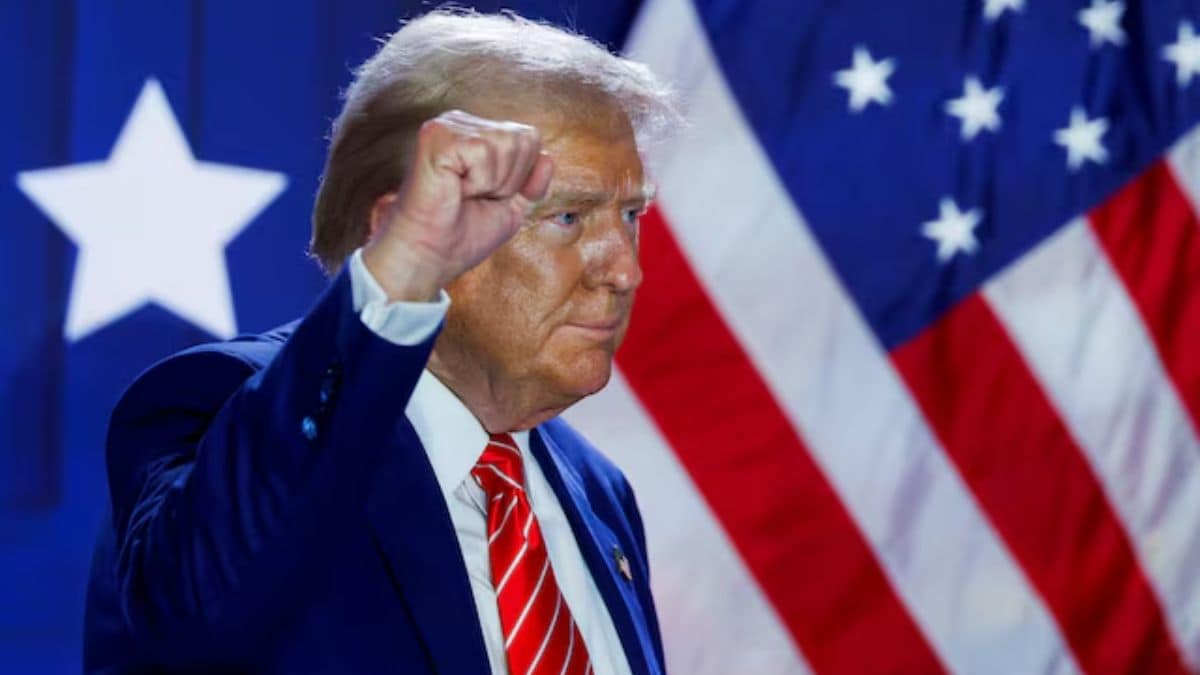
Before the nomination of Vice President Kamala Harris as the running opponent to Donald Trump, a Trump 2.0 in Washington seemed more imminent. The unpredictability of Trump’s presidency, demonstrated in foreign policy matters, posed a considerable challenge for states.
Despite those concerns, his reappearance in Washington should be a safer gamble for India rather than an Indian-origin US President taking charge. The assumption of a Trump 2.0 being more favourable to India mostly has to do with Russia.

Since the onset of the Ukrainian crisis, India has found it a challenging task to navigate its relationship with its age-old ally Moscow and its newfound partner,Washington. The US presidency under Joe Biden has been keen to portray the war in Ukraine as a defining factor in US foreign policy, where cultivating relationships with Washington and parallelly partnering with Moscow was not an option. Following Prime Minister Narendra Modi’s recent visit to Russia, New Delhi had to face severe criticisms from the United States.
The American Ambassador to India, Eric Garcetti, went to the extent of cautioning India not to take the ties with the US for granted. With Trump on the scene, the option of engaging Moscow and Washington together would not seem so unviable, given his indifference to the entire epoch of the Ukrainian war. His position on this, as evident from his tweets and speeches at election rallies, should reflect his stance and bring some respite to India if Trump ever gets back the presidential chair.
One thing that Trump has made clear is his disinterest in the Ukrainian conflict. As with all other foreign policy-related issues, he prefers to view this war strictly through the lens of US strategic interests. For Trump, America’s involvement in it does not serve a purpose.
He has been against sending ammunition to Ukraine unless it enters into peace talks with Moscow. As for NATO’s role in safeguarding Ukraine, his isolationist perception of foreign policy could never perceive its relevance. He happens to believe that Washington’s NATO allies are needlessly abetting the crisis in Ukraine by their meddling.
Trump had always found the NATO allies overly dependent on the US. The war in Ukraine has further exacerbated that reliance and widened the gap, according to Trump. If Trump wins this election, the following becomes a strong possibility.
He will make sure to pull US aid out of Ukraine. Once the US is out, it is only a matter of days before the entire strategic arrangement crumbles. Trump has categorically held that had he been in Biden’s place, the war would have found its end within “24 hours”.
He has never further mentioned if he would actually like to see Ukraine prevail in the conflict. Choosing J D Vance as his running mate, who fervently stood against the US’ substantial financial aid to Ukraine, should also be adequate to reflect Trump’s stance on the Ukrainian crisis. Despite the situation with Russia not being as convoluted as it is now, during Trump’s last presidency it had not exactly been smooth either.
The situation in Ukraine has started simmering since then. Trump also unwillingly had to heed the US Congress’s demand to sanction Russia on the use of chemical weapons for poisoning an ex-spy in the United Kingdom. Amidst the worsening US relations with Russia, India finalised its $5.
5 billion deal to procure five units of S-400 air defence missile systems from Russia, reserved only for its closest strategic partners. The deal disappointed the United States, and speculations were abuzz that New Delhi would be slapped with the Countering America’s Adversaries Through Sanctions Act (CAATSA). Trump cautioned India that it “will soon find out”, which India never did! Regardless of the S-400 deal with Russia, India and the United States agreed on their shared security threat from China and made an impactful headway in the Indo-Pacific through the QUAD.
While Trump was in office, his isolationist foreign policy outlook allowed India to juggle other actors to bargain for better strategic deals without sabotaging its ties with the US. If back in power, Trump will push for a settlement between Ukraine and Russia and might even be interested in engaging with Russia. During his last presidency, Trump and Putin met five times to discuss a way forward, albeit with no significant developments, amidst the existing frosty relations between the two countries.
Nonetheless, efforts were made towards normalisation. Trump’s apathy to Ukraine’s predicament and his relatively less staunch stance on Russia would work in India’s favour. In a Trump 2.
0, the dynamics of India-Russia relations during the Ukrainian war may be less scrutinised. As unpredictable as Trump can be, India can expect a breathing space to juggle the West and Russia without fearing worsening relations with the US. More than an Indian-origin President taking the seat in Washington, Trump would be favourable for New Delhi.
Anondeeta Chakraborty is a postgraduate student at the School of International Studies, Jawaharlal Nehru University, New Delhi. Views expressed in the above piece are personal and solely that of the author. They do not necessarily reflect Firstpost’s views.
.














